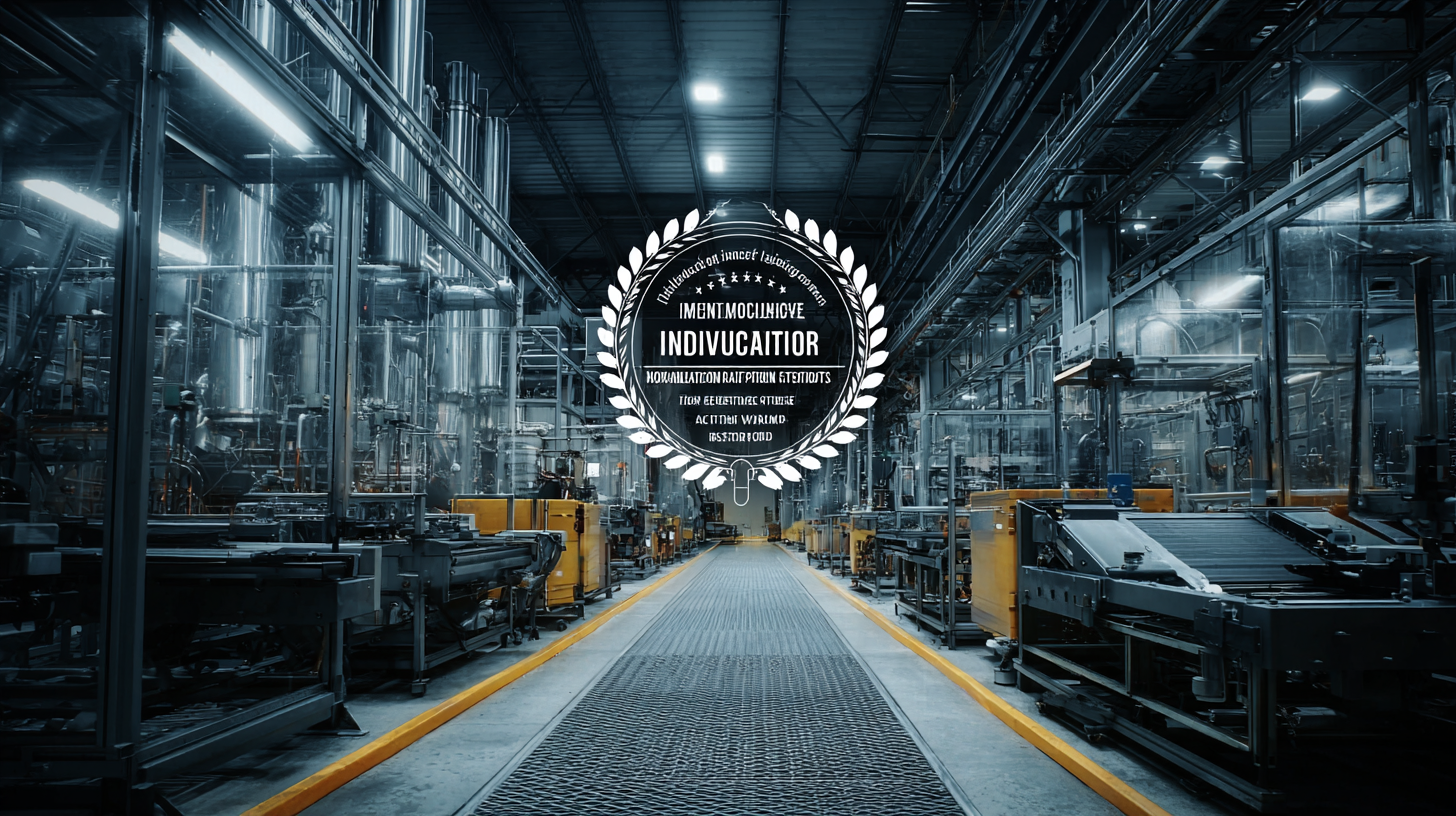- English
- русский
- العربية
- tiếng Việt
- Türkçe
- Deutsch
- 日本語
- 한국어
- ภาษาไทย
- Indonesia
- שפה עברית
- Português
- Español
- Français
- Italiano
- Nederlands
- Polski
- Svenska
- magyar
- Malay
- বাংলা ভাষার
- Dansk
- Suomi
- हिन्दी
- Pilipino
- Gaeilge
- تمل
- český
- ελληνικά
- український
- Javanese
- فارسی
- தமிழ்
- తెలుగు
- नेपाली
- Burmese
- български
- ລາວ
- Latine
- Қазақша
- Euskal
- Azərbaycan
- Slovenský jazyk
- Македонски
- Lietuvos
- Eesti Keel
- Română
- Slovenski
- मराठी
- Srpski језик

Innovative Industry Applications from the Best Manufacturers Around the World
In today's rapidly evolving global economy, the role of manufacturers in driving innovation across various industries cannot be overstated. According to a report by the World Manufacturing Forum, the global manufacturing sector is projected to reach $46 trillion by 2028, highlighting the pivotal position of manufacturers in shaping technological advancements and industry practices. Specifically, in China, manufacturers are at the forefront of this transformation, leveraging advanced technologies such as artificial intelligence and automation to enhance production efficiency and sustainability. As highlighted by Deloitte's 2023 Industry Outlook, the emphasis on quality production is crucial, with a notable shift towards smart manufacturing solutions that not only improve output but also reduce environmental impact. This blog will explore the innovative applications and best practices of leading manufacturers around the world, illustrating how "中国优质出品" is becoming synonymous with excellence in the global manufacturing landscape.

Exploring Cutting-Edge Technologies in Manufacturing for Enhanced Efficiency
The automotive industry is undergoing a transformative journey, especially highlighted by the inauguration of the cutting-edge Metaplant America in Georgia. This facility exemplifies how smart manufacturing drives new productivity by deeply integrating technology with industrial processes. With a focus on green and efficient production methods, innovative plants such as this not only enhance operational efficiency but also pave the way for sustainable manufacturing practices.

According to market analysis, the manufacturing execution systems (MES) sector is expected to surpass $15 billion by 2024, fueled by the complexities in manufacturing processes. The compound annual growth rate (CAGR) projected at 10.2% from 2025 to 2034 underscores the urgent need for advanced technologies amid evolving market dynamics. As organizations strive for smarter production lines, initiatives like the "lighthouse factories" introduced by global economic forums provide essential guidance in navigating this industrial revolution. These facilities serve as beacons, exemplifying the integration of AI, robotics, and advanced materials to set new benchmarks in productivity and efficiency within the sector.
Case Studies of Top Manufacturers Leveraging Innovation in Production
The manufacturing landscape is constantly evolving, driven by innovation and technological advancements. Top manufacturers around the world are harnessing cutting-edge techniques to enhance their production capabilities. One noteworthy case is a leading automotive manufacturer that integrates artificial intelligence and machine learning to optimize supply chain logistics. By analyzing real-time data, the company can predict demand fluctuations, thereby reducing excess inventory and minimizing waste. This innovative approach not only streamlines operations but also significantly reduces costs while improving customer satisfaction by ensuring timely delivery.
Another compelling example comes from the electronics sector, where manufacturers are utilizing advanced robotics and automation to revolutionize assembly processes. A renowned tech manufacturer has implemented collaborative robots, or cobots, that work alongside human workers to increase efficiency and precision in production lines. This synergy between humans and machines not only speeds up manufacturing cycles but also fosters a safer working environment, as robots take on more hazardous tasks. Through these case studies, it becomes evident that leveraging innovation in production not only enhances operational efficiency but also sets the stage for sustainable practices across various industries.
Innovative Industry Applications from the Best Manufacturers Around the World
| Industry | Innovation Type | Application | Impact |
|---|---|---|---|
| Automotive | Electric Vehicles | Battery Management Systems | Increased range and efficiency |
| Aerospace | 3D Printing | Lightweight Components | Reduced weight and cost savings |
| Healthcare | Telemedicine | Remote Patient Monitoring | Improved access to care |
| Manufacturing | Robotics | Automated Assembly Lines | Increased productivity |
| Retail | Artificial Intelligence | Personalized Shopping Experience | Higher customer satisfaction and sales |
Adopting Sustainable Practices: A Guide for Leading Industrial Players
The shift towards sustainable practices in industries worldwide is not a fleeting trend but a transformative movement that is reshaping business strategies. Leading manufacturers are increasingly recognizing the significance of adopting environmentally responsible measures, particularly within their supply chains. For instance, initiatives in agricultural sustainability reveal that, while awareness among farmers about sustainable practices is high, actual implementation is frequently hindered. This gap emphasizes the need for companies to craft comprehensive strategies that not only promote sustainability but also empower their suppliers to fully embrace these practices.
Tips for integrating sustainability into your business strategy include establishing clear sustainability goals and performance metrics. By setting measurable targets, companies can track progress and hold themselves accountable. Additionally, engaging stakeholders throughout the supply chain can foster a collaborative environment, encouraging more sustainable practices across all levels of operation. Finally, transparency is vital; openly communicating sustainability efforts can build trust with consumers and differentiate brands in a crowded marketplace.
Integrating AI and Automation: Transforming Traditional Manufacturing
The integration of AI and automation is reshaping the traditional manufacturing landscape, driving efficiency and innovation across industries. According to a recent McKinsey report, companies that adopt automation could see productivity gains of up to 30% by 2030. This shift is not just about cost-cutting; it's also about enhancing the quality of products and reducing time-to-market. For instance, manufacturers that utilize AI for predictive maintenance can reduce machine downtime by 50%, directly impacting their bottom line.
Furthermore, the adoption of smart manufacturing processes is transforming supply chain dynamics. A Study by Statista indicates that the global market for industrial AI is expected to reach $8.3 billion by 2025, emphasizing the growing importance of data-driven decision-making in manufacturing. Automation technologies, such as robotics and machine learning, are facilitating real-time analytics, enabling manufacturers to respond swiftly to market demands and optimize production schedules. As manufacturers around the world embrace these innovations, they are not only modernizing their operations but also setting new standards for competitiveness in the global marketplace.
Innovative Industry Applications: AI and Automation in Manufacturing
This chart illustrates the percentage of traditional manufacturing processes that have integrated AI and automation technologies across various sectors in the last few years.
Collaboration and Innovation Hubs: Driving Success in Global Manufacturing
In today’s rapidly evolving manufacturing landscape, collaboration and innovation hubs play a pivotal role in driving success. These hubs serve as fertile grounds where manufacturers, technologists, and researchers converge to share ideas and resources. By fostering a culture of collaboration, businesses can streamline processes, improve product development, and respond more swiftly to market demands. For instance, partnerships formed within these innovation ecosystems often lead to groundbreaking advancements in automation, sustainability, and smart manufacturing practices.
Global manufacturers are increasingly recognizing the importance of these collaborative environments. Companies are establishing innovation centers that not only focus on their internal projects but also encourage open dialogue with external partners and startups. This cross-pollination of ideas leads to innovative solutions that might not emerge in isolation. Furthermore, these hubs can attract top talent from diverse backgrounds, infusing fresh perspectives that drive further creativity and efficiency in production. As industries continue to adapt and grow, embracing collaboration within innovation hubs will be essential for maintaining a competitive edge on the global stage.

